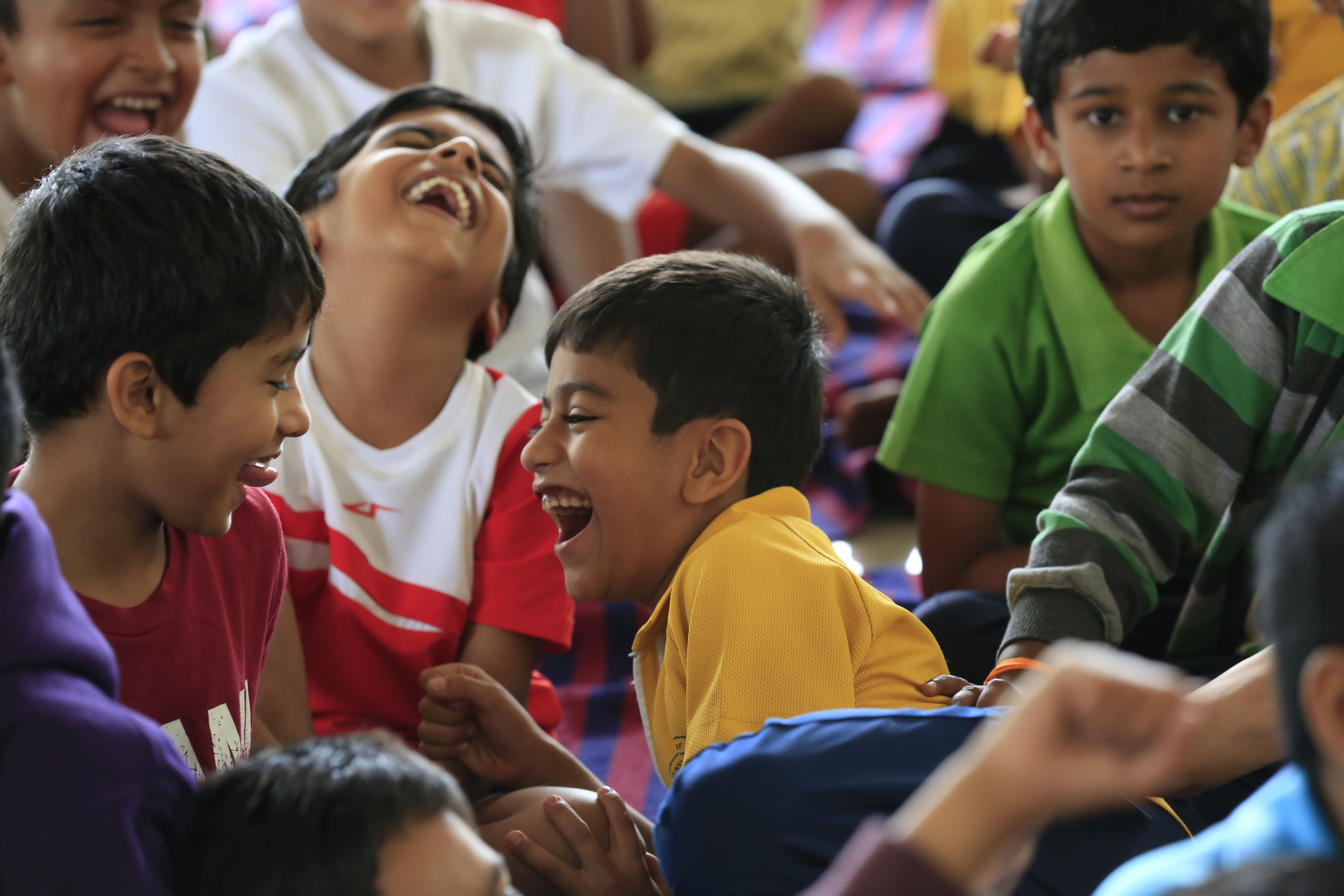Unlocking the Power of Play: Joyful Learning in Early Education
“The sign of success is overwhelming joy, confidence, compassion, generosity, and a smile that none can snatch away."
-Gurudev Sri Sri Ravishankar
Introduction
Early childhood education is the foundation upon which a child's future success is built. In recent years, there has been a growing recognition of the importance of joyful learning in early education. As parents and educators strive to provide the best possible start for their children, it's crucial to understand how play can unlock the full potential of early education. In this blog, we will explore the role of play in fostering joyful learning and how it can benefit children in some of the top CBSE schools in India and other top-rated schools in the country.
The Importance of Joyful Learning
Joyful learning is more than just having fun in the classroom; it's about creating an environment where children are actively engaged, curious, and excited about learning. When children enjoy what they are doing, they are more likely to be motivated, retain information, and develop a lifelong love for learning. This is where play comes into play—it offers a natural and enjoyable way for children to explore, experiment, and make sense of the world around them.
The Role of Play in Early Education
1. Play-Based Learning in Top CBSE Schools in India:
Play-based learning is gaining recognition in some of the top CBSE schools in India. These schools understand that play is a powerful tool for teaching and learning. Play allows children to develop essential skills such as problem-solving, creativity, communication, and social interaction. In top CBSE schools in India, play-based learning is often integrated into the curriculum, helping children grasp complex concepts through hands-on experiences.
2. Playgrounds in Top-Rated Schools in India:
Many top-rated schools in India prioritize creating stimulating and safe playgrounds for their students. These spaces are not just for physical activity but also for imaginative play. Playgrounds are where children learn to take risks, develop motor skills, and build friendships. The combination of structured and unstructured playtime in these top-rated schools in India helps children grow holistically.
The Benefits of Play-Based Learning
a. Enhanced Creativity: When children engage in imaginative play, they are free to explore and create without strict guidelines. This fosters creativity and problem-solving skills, which are essential for success in any field.
b. Improved Social Skills: Play encourages interaction with peers, helping children learn how to cooperate, negotiate, and resolve conflicts. These social skills are crucial for building relationships throughout life.
c. Cognitive Development:
Play-based learning stimulates cognitive development by promoting critical thinking, spatial awareness, and mathematical understanding. It also lays the foundation for early literacy skills.
d. Physical Health:
Play involving physical activities promotes motor skills and overall physical health, reducing the risk of childhood obesity and related health issues.
e. Emotional Well-Being:
Play allows children to express their emotions and cope with stress. It contributes to their emotional well-being, fostering resilience and mental health.
Implementing Play-Based Learning
To unlock the power of play in early education, teachers and parents can take the following steps:
- Create Playful Environments: Ensure that the learning spaces are conducive to play and exploration, both at home and in school.
- Provide Open-Ended Materials: Offer a variety of materials that encourage creativity and problem-solving, such as building blocks, art supplies, and imaginative play props.
- Balance Structure and Freedom: Strike a balance between structured learning activities and unstructured playtime to meet educational goals while allowing children to follow their interests.
Conclusion
Play is not just a break from learning; it's an integral part of learning itself. Joyful learning in early education, whether in top CBSE schools in India or other top-rated schools in the country, recognizes the vital role of play in nurturing well-rounded, creative, and confident individuals. By embracing play-based learning, we can unlock the full potential of our children, setting them on a path to a bright and successful future.

